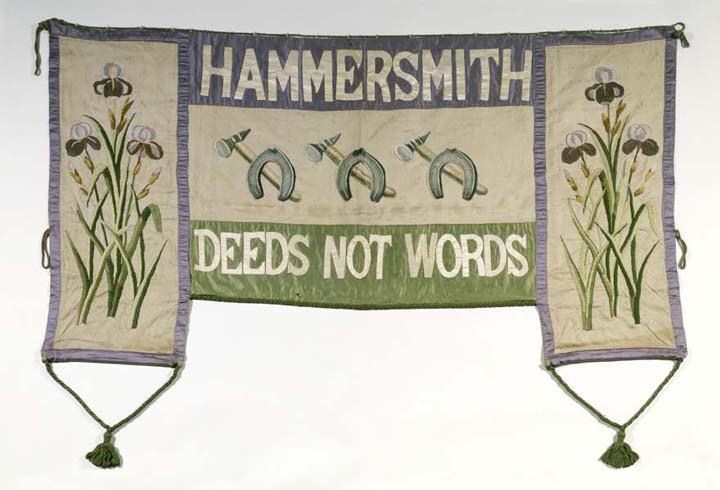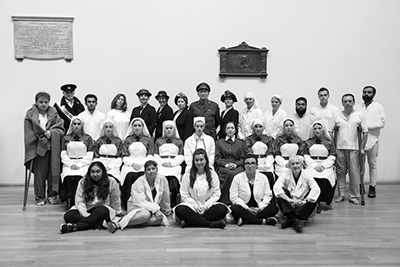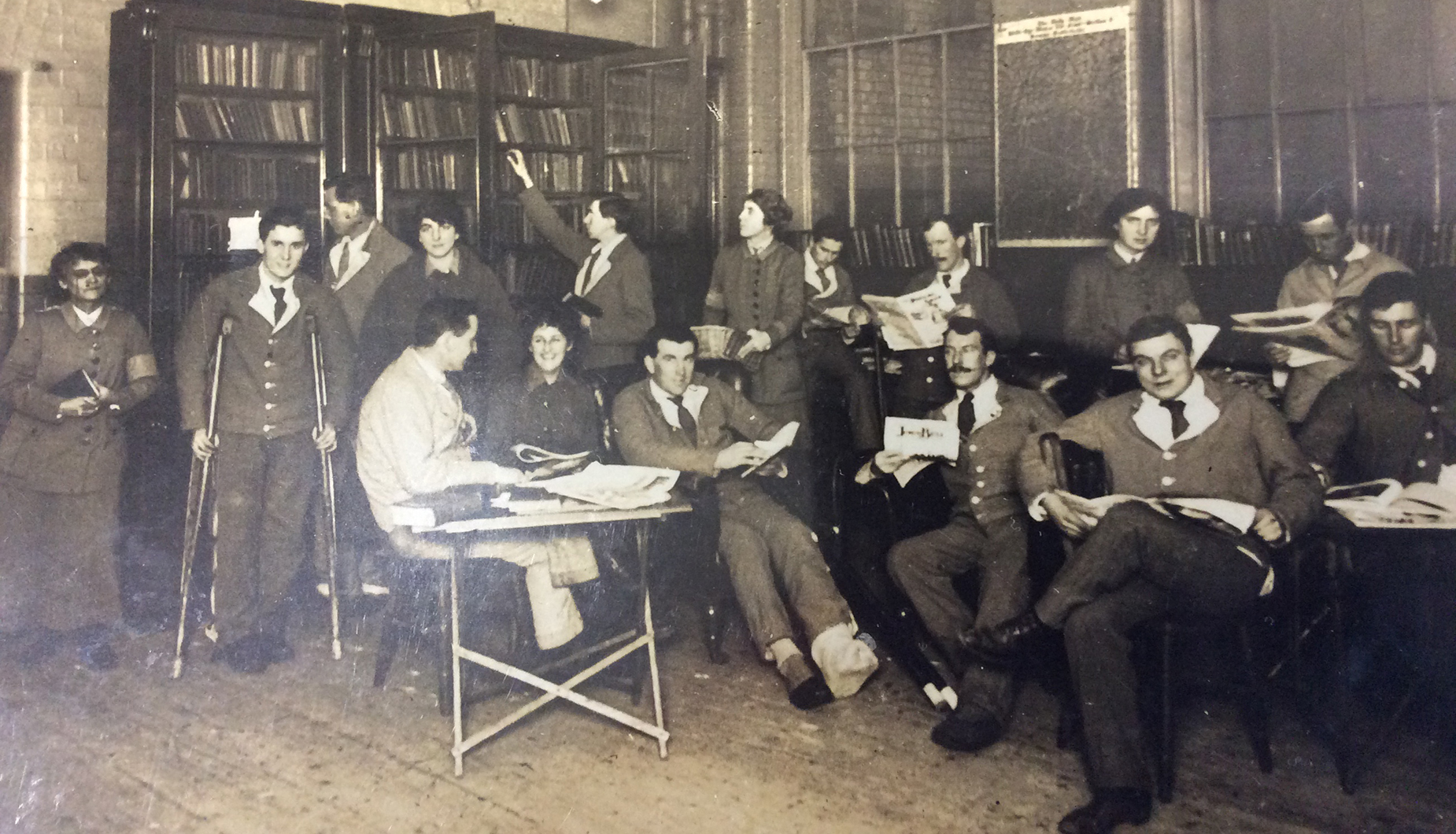Since 2015, I’ve been working on the story of Helen Mary Gaskell’s War Library. This prime example of what I call ‘literary caregiving’ was begun in London as soon as war was declared in order to help wounded soldiers. Gaskell’s vision was of a library stocked with donated books, communicating care from those in the UK who sent books at the same time as delivering, by literary means, distraction, entertainment, information, comfort, and relaxation for traumatised bodies and minds.
The War Library was incredibly successful from the outset. It affiliated with the Red Cross in 1915, which helped raise its profile as well as meaning it could operate more successfully, from an institutional base. Until that point, May Gaskell, as she was known, funded the library along with her brother, Beresford Melville, and a few wealthy and influential friends, some of whom included politicians. Lady Battersea offered her Marble Arch mansion, then standing empty, to house the donated books. Viscount Samuel, the Postmaster General, wrote later of his pleasure at heading the department responsible for administering the War Library’s national collections and international deliveries.
May Gaskell does not seem to have joined the suffrage campaign, but her close friend, Sybil (Countess) Brassey, was President of the National Union of Women’s Suffrage Societies, and with her husband helped to fund the War Library, the Committee of which she joined in 1916. Affiliation with the Red Cross opened the way to accessing better funding for the project, and The Times newspaper was particularly friendly to the library, carrying many advertisements and letters to spread the word. I tell the story of this library in an article forthcoming in the Journal of Medical History, and it provided the context for my approach to Endell Street Military Hospital.
 'Deeds not words' banner. The women lived by the WSPU's motto and hoped that their good deeds at the hospital would prove women's equality.
'Deeds not words' banner. The women lived by the WSPU's motto and hoped that their good deeds at the hospital would prove women's equality.
Endell Street's library was run by two prominent members of the Women Writers’ Suffrage League, which had been founded in 1908 by Cicely Hamilton and Bessie Hatton. The aim of the WWSL was to obtain the franchise on the same terms as men, and its members sought to do this through use of the pen. Elizabeth Robins, an American actress and writer, was one of the first members of the WWSL, and its first president. The British novelist Beatrice Harraden was another of the organisation’s first members and she served as librarian at Endell Street from 1915 until the hospital closed, joined by Elizabeth Robins for the first year or so.
The philosophy of this library, like Gaskell’s, was a reader-led one. In other words, these women made an operational decision to cater for the readers’ requests when it came to their reading matter, rather than to impose their idea of what might be termed ‘improving’ reading upon them. The men’s fears of having their lack of education exposed, or of being made fun of for their tastes in more popular literature, for example, were eased in this way. The librarians’ seat at their bedside, talking to the injured men as they tried to find out more about their interests and background so that they could make recommendations as well as meet requests, became an opportunity to enjoy conversation and experience care based on books and reading.
Books were part of the men’s cure at Endell Street, and their availability was part of what I see as care ‘in the round’ at this hospital. It is a pleasure to be working on this story as a literature specialist, experiencing during my research my own belief in the positive power of books becoming increasingly evidenced in this way.
I’m writing up the results now, in an article on war-time bibliotherapy co-authored with my colleague Dr Edmund King. Watch this space for further updates!
Endell Street: learning, researching, expanding the story
 A still from the immersive drama on Endell Street Military Hospital
As I say in the film, I came across Digital Drama’s projects on Endell Street online during my research. See the link to their Heritage Lottery Funded and award-winning film about the hospital. I dropped an enquiry to their site’s contact address, and was amazed on Alison Ramsey’s reply to learn that she also works part-time at the Open University in London. She invited me to the immersive drama the company produced about Endell Street (which was a huge treat to see), and introduced me to Dr Jennian Geddes. Dr Geddes' article on Endell Street, ‘Deeds and Words in the Suffrage Military Hospital in Endell Street’, published in Medical History (2007), is a must-read for anyone working in this field. She generated the modern interest in this amazing story and provided its scholarly basis. Wendy Moore, a freelance journalist and author who Jennian, in turn, put me in touch with, is currently writing a book about Endell Street. Working alongside this inspiring group of researchers is a hugely positive experience, adding significantly, from a personal perspective, to the original power of the story itself.
A still from the immersive drama on Endell Street Military Hospital
As I say in the film, I came across Digital Drama’s projects on Endell Street online during my research. See the link to their Heritage Lottery Funded and award-winning film about the hospital. I dropped an enquiry to their site’s contact address, and was amazed on Alison Ramsey’s reply to learn that she also works part-time at the Open University in London. She invited me to the immersive drama the company produced about Endell Street (which was a huge treat to see), and introduced me to Dr Jennian Geddes. Dr Geddes' article on Endell Street, ‘Deeds and Words in the Suffrage Military Hospital in Endell Street’, published in Medical History (2007), is a must-read for anyone working in this field. She generated the modern interest in this amazing story and provided its scholarly basis. Wendy Moore, a freelance journalist and author who Jennian, in turn, put me in touch with, is currently writing a book about Endell Street. Working alongside this inspiring group of researchers is a hugely positive experience, adding significantly, from a personal perspective, to the original power of the story itself.





Rate and Review
Rate this article
Review this article
Log into OpenLearn to leave reviews and join in the conversation.
Article reviews